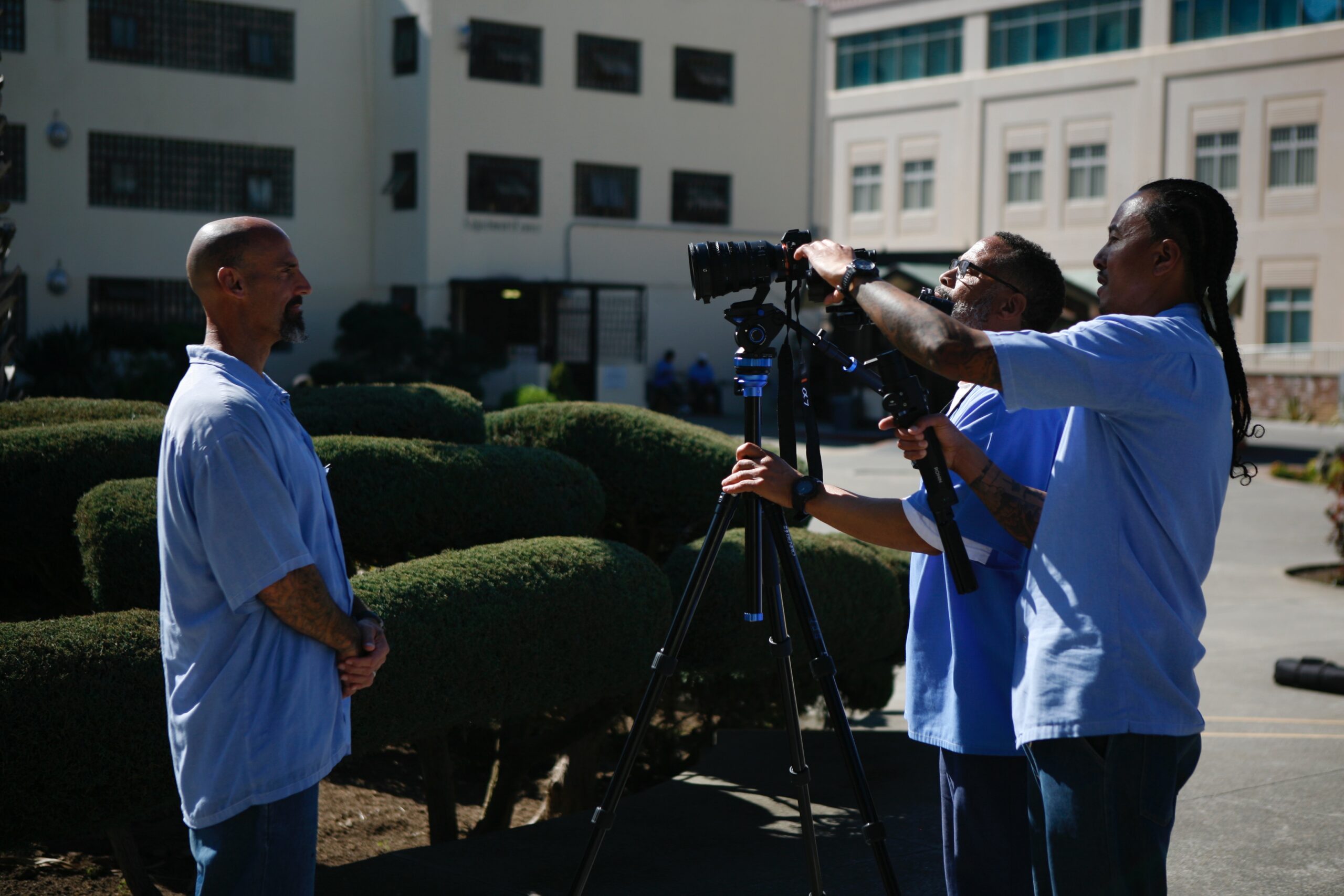Rahsaan “New York” Thomas grew up in the notorious Brownsville section of Brooklyn, New York, where he faced gun violence, bullying, redlining, abusive policing policies, generational incarceration, and drug infestation. His choices in the face of such adversity landed him in prison with a 55 to life sentence. From a cell, he turned his life around and became a writer, curator, director, producer, social justice advocate, restorative justice circle keeper, youth counselor, and runner.
He is most known as “New York” on the Pulitzer Prize finalist and Dupont Award-winning podcast Ear Hustle. He’s a contributing writer for The Marshall Project, San Quentin News, and Current with freelance work in High Country News, Boston Globe, Stranger’s Guide, NBC Universal Academy, Business Insider, and many others. Rahsaan has appeared in several documentaries, including Q-Ball and 26.2 to Life. After which he decided to start making his own. The Sundance Institute and The Marshall Project awarded him a grant to direct and produce a short documentary film called Friendly Signs, which premiered at the San Francisco Documentary Film festivals. Rahsaan also produced, What These Walls Won’t Hold, directed by Adamu Chan, which won the San Francisco International Film Festival. W. Kamau featured Rahsaan in a United Shades of America episode—all while still in prison.
Now on parole, he is the Executive Director of Empowerment Avenue, an organization that works to develop the careers of incarcerated writers, artists, journalists, and filmmakers pre-entry. He continues to co-host Ear Hustle, make films, and he’s on the boards of Initiative Justice, North Cal Society of Professional Journalists, and Their Stories Advisory Board.
